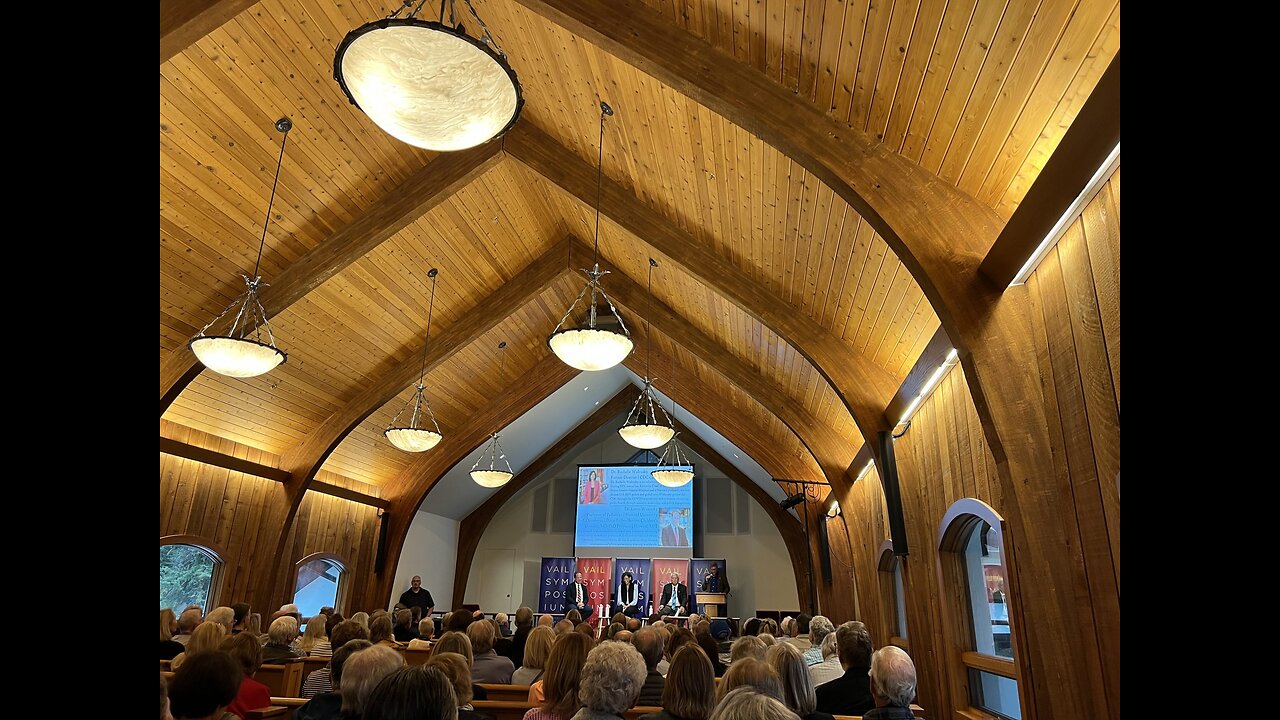Premium Only Content

Broken Health Care System Drains Wallets, Shortens Lives
Welcome to Ope Vox, the podcast keeping you informed on issues that hit close to home for folks like us in our golden years. In simple terms, former CDC Director Rochelle Walensky spoke at a Colorado event about our nation's health care woes. She called it "broken" due to sky-high costs, doctor shortages, and poor access, especially in rural areas. Americans spend double what other rich countries do, yet live shorter lives—with gaps up to 20 years between states. She urged more focus on prevention and training doctors where they're needed most, warning against funding cuts that could hurt us all.
Let's look at the bigger picture. Think of our health care like an old car: it guzzles gas (money) but breaks down often, leaving many stranded without a ride to the doctor. Data from the CDC shows U.S. life expectancy is just 78.4 years, lagging behind countries like Japan at 84. We spend $4.9 trillion yearly—$14,570 per person—mostly on hospitals and emergencies, not check-ups. The NIH notes declines from chronic ills like heart disease, which kills 700,000 yearly, often due to skipped preventive care. Over 80 million lack nearby doctors; primary care shortages hit 140,000 spots. Prescription costs? HIV meds here run $50,000 vs. $67 abroad. For us seniors, this means higher copays—30-50% abandon scripts—worsening arthritis or diabetes. Analogy: Cholesterol, that waxy stuff in blood, is like rust in pipes; too much clogs arteries, leading to heart attacks. CDC stats: 90% of spending goes to chronic conditions, yet only 3% on prevention.
Diving deeper, Walensky's talk spotlights misspent funds—twice the global average, but outcomes worse. Experts like AMA's Jesse Ehrenfeld warn burnout and shortages worsen without reform. A Commonwealth Fund report ranks U.S. last among peers in access and equity. Impactful fix: Boost residencies, capped since 1990, to train more in rural spots—docs who learn there stay 70% more. Preventive care saves: Screenings cut colon cancer deaths 30%, but travel barriers in places like Alaska spike rates. Meet Bob, a 72-year-old farmer: High copays skipped his blood pressure meds, landing him in ER with a stroke—costing $100,000 vs. $200 yearly prevention. Dr. Kevin Spencer says value-based care empowers patients, shifting to outcomes over volume. Sanders calls it "dysfunctional," pushing workforce growth. Without action, cuts to CDC/NIH could close rural clinics, hitting Medicare folks hardest. We need advocacy for smarter spending, less bureaucracy.
That's today's deep dive on Ope Vox—stay healthy, stay informed.
#HealthCareCrisis #SeniorHealth #DoctorShortage #PreventiveCare #LifeExpectancy #HighCosts #RuralAccess #CDCInsights #MedicalReform #ChronicDiseases #PrescriptionPrices #PrimaryCare #HealthExpenditures #USHealthSystem #AgingPopulation #MedicareIssues #HealthDisparities #ExpertOpinions #WalenskyTalk #VailSymposium #PublicHealth #FundingCuts #HeartDisease #DiabetesManagement #CancerScreenings #BurnoutDoctors #ValueBasedCare #ResidencyTraining #BureaucracyFix #PatientEmpowerment #EconomicBurden #GlobalComparison #MentalHealth #VaccineAccess #NursingHomes #Rehabilitation #InnovationsHealth #LifestyleChanges
-
 LIVE
LIVE
Wendy Bell Radio
5 hours agoWelcome To The "Find Out" Phase
7,516 watching -
 LIVE
LIVE
Crypto Power Hour
1 hour agoSpecial Guest Natalie Brunell, Author & Bitcoin Maxi
7,737 watching -
 LIVE
LIVE
Total Horse Channel
13 hours agoAMHA 2025 World Show 9/26
220 watching -
 LIVE
LIVE
LFA TV
17 hours agoBREAKING NEWS ALL DAY! | FRIDAY 9/26/25
3,239 watching -
 1:25:41
1:25:41
Chicks On The Right
4 hours agoComey's FAFO moment, Dallas sniper details, DFWYF, and who to trust in media.
19.4K5 -
 LIVE
LIVE
Welcome to the Rebellion Podcast
17 hours ago $1.54 earnedYou Made it to FriJay - WTTR Podcast Live 9/26
295 watching -
 1:29:14
1:29:14
Game On!
18 hours ago $2.07 earnedNFL Week 4 Betting Report Preview!
20.9K2 -
 21:05
21:05
Adam Does Movies
22 hours ago $1.71 earnedAlien: Earth Episode 8 - Recap
21.6K3 -
 18:49
18:49
World2Briggs
20 hours ago $2.09 earnedTop 10 States To retire in 2026 According to Experts
24K4 -
 19:03
19:03
Blackstone Griddles
15 hours agoParmesan Ranch Chicken Sandwich oxn the Blackstone Griddle
25K3